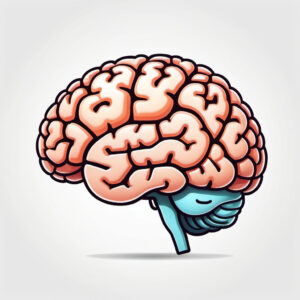Neurological disorders can be a daunting topic, but let’s embark on a journey to uncover an intriguing frontier in brain health: cannabis. Yes, you read that right—cannabis. Once a stigmatized substance, it’s now gaining recognition as a potential ally in the fight against various brain-related conditions. So, buckle up for an enlightening ride through the promising landscape of cannabis and its impact on neurological health.
Imagine the brain as a bustling city, with neurons zipping around like cars on a busy highway, sending signals and messages to keep everything running smoothly. But sometimes, traffic jams occur—neurotransmitters get blocked or misfired, leading to a host of neurological disorders such as epilepsy, multiple sclerosis, Parkinson’s disease, and even Alzheimer’s. Here’s where cannabis steps into the spotlight.
Cannabis contains compounds called cannabinoids, with the two most famous being THC (tetrahydrocannabinol) and CBD (cannabidiol). While THC is the well-known psychoactive component that causes the “high,” CBD is non-psychoactive and has been hailed for its potential therapeutic benefits. These cannabinoids interact with the endocannabinoid system (ECS) in our bodies, a complex cell-signaling system that plays a crucial role in regulating various functions, including mood, pain sensation, and immune response.
Epilepsy is a neurological disorder characterized by recurrent seizures, and it can significantly impact one’s quality of life. Enter CBD: studies have shown that it can reduce the frequency and severity of seizures in some patients. In fact, the U.S. Food and Drug Administration (FDA) has approved a CBD-based medication called Epidiolex for the treatment of certain types of epilepsy. This breakthrough has provided hope for individuals who previously had limited treatment options.
MS is an autoimmune disorder where the immune system mistakenly attacks the protective covering of nerve fibers, leading to communication problems between the brain and the rest of the body. Symptoms can range from numbness and tingling to severe mobility issues. Some studies suggest that cannabis, particularly CBD, may help alleviate muscle spasticity and pain associated with MS, offering a glimmer of relief for those grappling with this challenging condition.
Moving on to Parkinson’s disease, a progressive disorder of the nervous system that affects movement. It’s often characterized by tremors, stiffness, and slow movement. Research into the effects of cannabis on Parkinson’s is still in its infancy, but some early findings indicate that it may help improve quality of life by reducing pain, improving sleep, and even easing motor symptoms. While more studies are needed, these initial results are promising.
And then there’s Alzheimer’s disease, a devastating condition that robs individuals of their memories and cognitive functions. While there’s no cure for Alzheimer’s, cannabis research is exploring whether cannabinoids might help reduce inflammation and oxidative stress in the brain, potentially slowing the disease’s progression. It’s a beacon of hope for those seeking new avenues in the battle against this relentless foe.
The once-maligned cannabis plant is emerging as a promising contender in the realm of neurological health. From epilepsy and multiple sclerosis to Parkinson’s and Alzheimer’s, its potential to alleviate symptoms and improve quality of life is captivating the attention of researchers and patients alike. While more research is needed to fully understand and harness its benefits, the future looks bright for cannabis as a frontier in brain health.
So, the next time you hear about cannabis, remember: it’s not just about the buzz—it’s about the brain. And that, my friend, is a story worth sharing.








